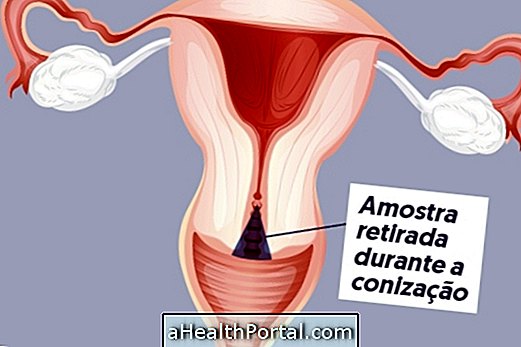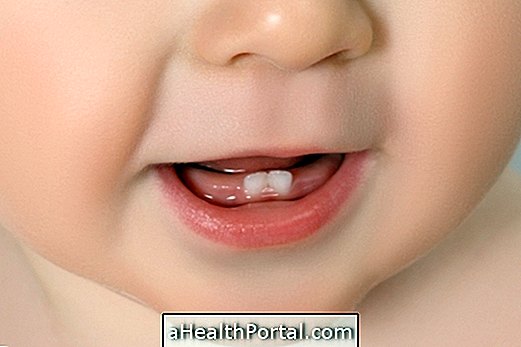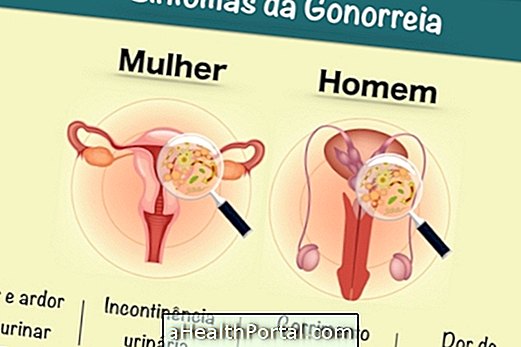One sign that may indicate that you are losing your hearing is to frequently ask to repeat some information, often referring to "what?", For example.
Hearing loss is more common with aging, often occurring in the elderly, and in these cases, hearing loss is known as presbycusis. However, it can occur at any age, as in the case of frequent ear infections or excessive noise, for example. To know other causes of deafness read: Find out what are the main causes of deafness.
In addition, hearing loss can be mild, moderate or severe and can affect only one ear or both, and the ability to hear usually worsens slowly.

Symptoms of hearing loss
The main symptoms of hearing loss include:
- Difficulty speaking on the phone, understanding all words;
- Speak very loudly, being identified by family or friends;
- Frequently ask to repeat some information, often saying "what?";
- Have the sensation of a plugged ear or hear a small buzzing sound;
- Constantly looking at the lips of family and friends to better understand the lines;
- Need to increase the volume of the TV or radio to hear better.
Hearing loss in adults and children is diagnosed by a professional, such as a speech therapist or an otolaryngologist, and it is necessary to perform hearing tests, such as an audiogram, to identify the degree of hearing loss. For more details on children's hearing loss read: Learn how to identify if the baby is not listening well.
Degree of hearing loss
Hearing loss can be classified into:
- Light: when the individual only hears from 25 decibels to 40, it is difficult to understand the speech of family and friends in noisy environments, in addition to not being able to hear the ticking of the clock or a bird singing;
- Moderate: when the individual hears only from 41 to 55 decibels, it is difficult to hear a group conversation.
- Accentuated: the ability to hear only occurs from 56 to 70 decibels, being that, in these cases, the individual can only hear loud noises such as the crying of children and the vacuum cleaner working, and it is necessary to use a device or hearing aid. Find out how to care for the hearing aid at: How and when to use the Hearing Aid.
- Severe: when the individual can only hear from 71 to 90 decibels and is able to identify dog barks, bass piano sounds or the ringing of the phone at maximum volume;
- Deep: you can usually hear from 91 decibels and you can identify no sound, communicating through sign language.
Generally, individuals with mild, moderate or severe levels of hearing loss are referred to as hearing impaired and those who have profound hearing loss are known as deaf.
Hearing loss treatments
The treatment for hearing loss depends on its cause and is always indicated by the otorhinolaryngologist. Some of the treatments for hearing loss include, washing the ear, when there is excess wax, taking antibiotics in case of ear infections or putting on a hearing aid to recover part of the lost hearing, for example.
When the problem is located in the outer ear or in the middle ear, it is possible to perform surgery to correct the problem and the individual can hear again. However, when the problem is in the inner ear, the individual is deaf and communicates through sign language. See how the treatments are done in: Know the treatments for hearing loss.
Was this information helpful?
Yes No
Your opinion is important! Write here how we can improve our text:
Any questions? Click here to be answered.
Email in which you want to receive a reply:
Check the confirmation email we sent you.
Your name:
Reason for visit:
--- Choose your reason --- DiseaseLive betterHelp another personGain knowledge
Are you a health professional?
NoMedicalPharmaceuticalsNurseNutritionistBiomedicalPhysiotherapistBeauticianOther























